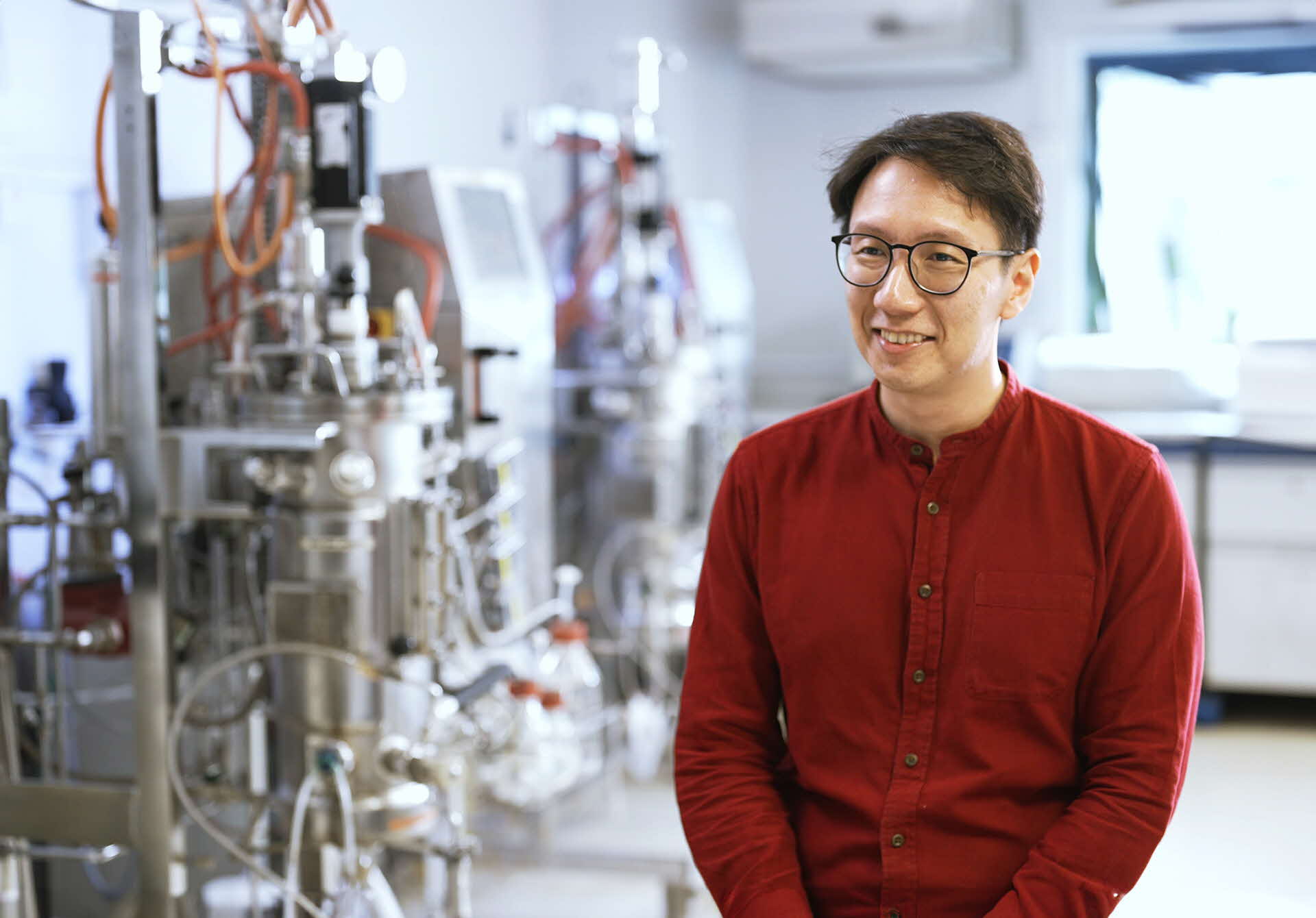From melodies to microbes: A visionary's quest to uplift lives and reshape industries

Edward Chia's entrepreneurial odyssey began with nurturing talents in the music realm. Now, driven by a profound desire to create a better world, he helms Life Lab Resources, a pioneering venture that transforms food waste into invaluable resources towards a circular economy.
Harmonising talent and purpose
Edward Chia's entrepreneurial journey commenced at the tender age of 21 when he co-founded the Timbre Group, a thriving live music and lifestyle company. For 16 illustrious years, he nurtured talents, fostering a vibrant creative community. However, a profound calling stirred within him – a yearning to "do something meaningful and purposeful in the green economy." He shared, "I've always been a youth advocate, believing in using talents to benefit society. With the birth of my son, I felt an inner urge to leave behind a better world."
Thus, Edward relinquished his role at Timbre and embarked on a year-long exploration of the green economy, seeking a meaningful problem to solve. He considered various sectors, from urban farming to district cooling, before homing in on food waste, a pervasive issue that struck a chord with his ethos.
"I realised there was a big gap," he said. "No one was truly recycling food waste back into food resources, closing the loop. Being in the food business for the last 17 years, I know that once food is left untouched or untreated, it degrades very quickly. Beyond the usual environmental and vector control concerns, the nutritional value also starts degrading,” he explained.
And so, Life Lab Resources was born, an innovative venture poised to transform the way we perceive and utilise food waste.
A harmonious cycle of regeneration
Life Lab Resources operates on a simple yet powerful three-step process.
Step One
In the first, crucial step, food waste is treated on-site using the WasteMaster machine, a proprietary technology that vaporises water, breaks down food at a cellular level, eliminates pathogens, and most importantly, preserves and retains the nutritional value of the food waste. After 24 hours, the treated food waste becomes a dry and inert substrate that can be stored for much longer, reducing its volume by 80%, slashing haulage frequency, storage space, and significantly reducing carbon emissions.
Step Two
Next, the treated substrates journey to a biorefinery, where they are transformed into nutrient-rich feedstock for microbial protein cultivation. "We harness the power of fermentation and biotech to cultivate high-quality protein," said Edward. "This protein feed meal becomes the cornerstone of animal and aquaculture feed, closing the food loop."
Step Three
Finally, the end product is sold to feed nutrient companies, providing a stable supply of animal or aquaculture feed and completing the virtuous cycle of regeneration.
Uplifting lives, reshaping industries
For Edward, success transcends mere numbers; it's measured in lives uplifted and industries reshaped. "Our dream is to uplift lives and change professions," he shared. "By providing sustainable solutions and creating job opportunities, we aim to make a tangible difference."
Moreover, through his work at Life Lab Resources, he hopes to inspire his 10-year-old son and future generations to continue the journey towards sustainability. He shared, "For my son, it's also a discovery journey. He hears me talking about the WasteMaster machine, he sees me talking about food waste recycling. I think especially for his generation, he goes to school, and is taught about sustainability. He comes back home, he hears his dad talking about it, doing something about it. I think it helps him translate the knowledge in the classroom into real-life application. And I just hope that I continue to inspire him too, so that his generation will continue to do good at the same time."
From its incorporation in December 2022, Life Lab Resources may still be a fledgling venture, but it is already making waves of impact. "In about a year, we have actually achieved quite significant market traction. In fact, I would say by the middle of this year, we'd have about close to 15 deployments, many of which with very big property companies, large catering companies, or large hotel chains," Edward enthused.
Spurred by this support, Life Lab Resources is aiming to rapidly scale up its operations to create greater impact, and it has been doing this with the help of the DBS Foundation Grant. "The DBS Foundation Grant has been an amazing help, because it is a shot in the arm to give us the resources, the confidence, to set up our pilot biorefinery. We are now on track to set up a pilot biorefinery, with Temasek Polytechnic as our joint development research partner. So we are going to set up a TP-Life Lab, joined by a refinery plant on campus at Temasek Polytechnic by the first quarter of 2024," he enthused.
However, despite the momentum Life Lab Resources is gaining, Edward remains humble, emphasising the importance of teamwork and focus. "Entrepreneurship is an ensemble. It's about building a strong team and staying true to your mission," he said.
His ultimate goal, however, extends beyond closing the food loop. Edward dreams of reshaping the waste management sector and empowering local communities. "We're not just about recycling food waste," he explained. "We're about creating opportunities for farmers, supporting sustainable agriculture, and fostering a circular economy."
By leveraging innovative technologies and strategic partnerships, Life Lab Resources aims to pave the way for a more resilient future, uplifting lives and reshaping industries in the process.
Know a business with purpose that could benefit from the DBS Foundation Grant? Tell them about the DBS Foundation Grant today!